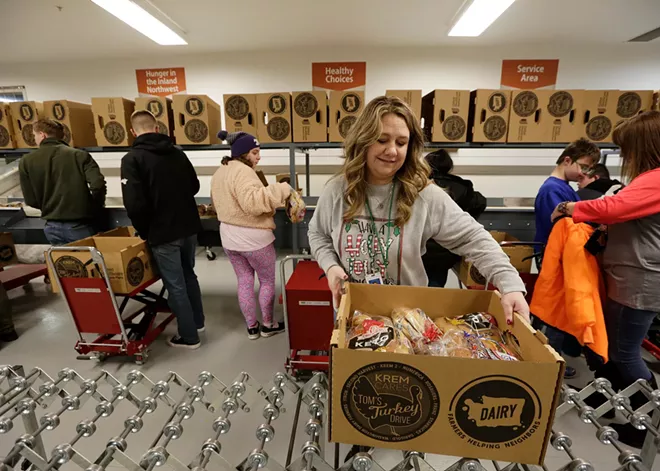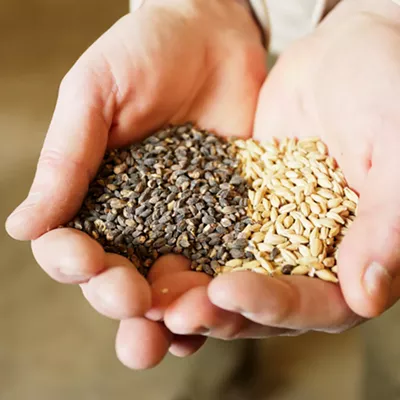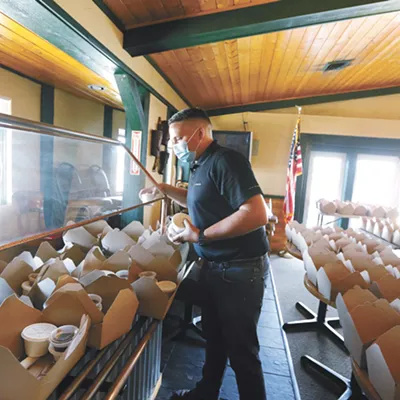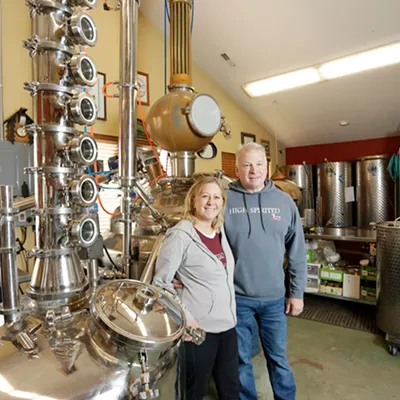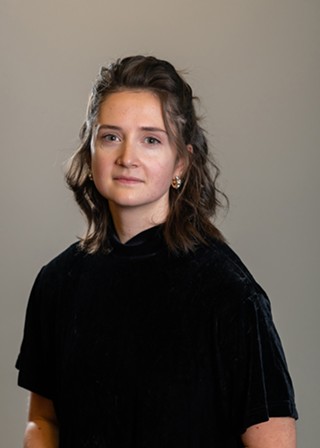Last year, Spokane County led the state in food waste per capita. On average, each person threw away about 170 pounds of food in 2023, and the city of Spokane said that one-third of the city's trash could have been eaten or composted.
It's an economic and environmental problem that caught the attention of Emily Menshew, a recent graduate of Gonzaga University and now Washington Service Corps member with Second Harvest. She decided to design a series of hands-on classes teaching people how to stretch their money by not letting food go to waste.
Second Harvest's Community Waste Reduction classes started this January. Menshew is offering four distinct classes on how to get the most bang for the buck and reduce home food waste. Hourlong classes are on Monday afternoons at Second Harvest's kitchen on East Front Avenue. They're hands-on and discussion-based, with a different demonstration every week.
Two classes have already passed, but not to worry — each class is different and completely stand-alone, so you don't need to attend previous classes to attend the third or fourth. These courses are free to anyone, though participants are asked to preregister so Menshew can prepare the right amount of materials, in the spirit of waste prevention.
"Emily does a really good job of framing waste reduction efforts in an approachable way so that people feel like they can go home and do that," says Carolyn Negley, nutrition education manager at Second Harvest. "It doesn't feel like it's a luxury or too much time or special equipment needed. Just by a little bit of planning, you can make a difference."
Some of Menshew's best advice is basic, though easy to forget in the hustle and bustle of everyday life.
"The easiest thing to do is to make sure that you're actually taking the time to go through your refrigerator and your freezer and your pantry before you make your grocery list and before you go shopping so that you're not purchasing things that you may already have," Menshew says. "You have to make sure that you're going to the store with a really good idea of what you already have and when it's going to expire."
Speaking of expiration dates, it's easy to get confused by the various dates listed on food packaging. Except for infant formula, these dates are not required by federal law and are at the discretion of the producer.
One reason perfectly safe food gets thrown away is because the "best by" date has passed. But the labels "best if used by," "sell by," or "use by" all indicate when the food is at its best quality, not whether it's OK to eat it or not. According to the U.S. Food and Drug Administration, again with the exception of infant formula, "if the date passes during home storage, a product should still be safe and wholesome if handled properly until the time spoilage is evident."
Although a lot of waste-reduction tips seem common sense, Menshew also offers pointers that seem counterintuitive at first.
"Make sure that you have a plan of how you're going to use the food that you're buying at the grocery store — try to not go for all those buy one, get one free deals, especially on perishable goods," she says. "You might be thinking that you're saving money in the long run. But if you end up having to throw away most of that food, it wasn't actually helping you." ♦
Community Waste Reduction Classes • Mon, Jan. 22 and Jan. 29 from 2-3 pm • Free • The Kitchen at Second Harvest • 1234 E. Front Ave • secondharvestkitchen.org • emily.menshew@ w2-harvest.org • 509-252-6255

